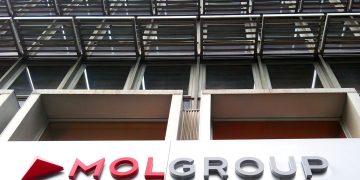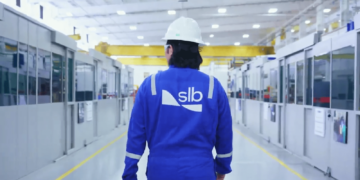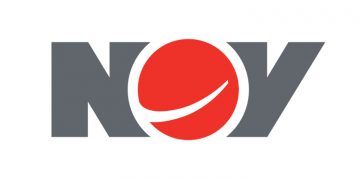Max Petroleum: Interim Financials – Revenues Double with Production up 58%
Max Petroleum, an oil and gas exploration and production company focused on Kazakhstan, today announces its interim results for the six months ended 30 September 2012.
A summary of the Group’s financial and operational highlights are as follows:
Financial Highlights
- Revenue of US$49.2 million during the six months ended 30 September 2012, up 102% compared to US$24.4 million during the six months ended 30 September 2011.
- Total sales volumes of 664,000 barrels of crude oil (“bbls”), up 58% from 421,000 bbls sold in the comparative period in 2011.
- Average realised price of US$74.07 per bbl, up 28% from US$57.93 per bbl during the six months ended 30 September 2011, due to increased export volumes relative to domestic sales.
- Cash generated from operations of US$31.1 million, up 291% from US$7.9 million in the comparative period.
- Loss before tax for the period of US$0.5 million, compared to a loss before tax of US$0.3 million during the six months ended 30 September 2011.
- EBITDA for the current period of US$17.9 million, up 67% from US$10.7 million during the six months ended 30 September 2011.
- Entered into a US$7 million equity for services agreement with Zhanros Drilling LLP to drill up to four post-salt exploration wells.
- As announced on 27 November 2012, entered into a US$90 million loan agreement with SB Sberbank JSC to refinance the Macquarie Bank credit facility, redeem all of the Company’s convertible bonds for a combination of cash and ordinary shares, and provide up to US$30 million for drilling future development and exploration wells and associated expenses. The restructuring is expected to close before 31 December 2012, subject to shareholder and bondholder approval, and will reduce the Group’s total debt from approximately US$140 million to approximately US$90 million.
Operational Highlights
- Average daily production of 3,770 barrels of oil per day (“bopd”) during the six months ended 30 September 2012, compared to 2,365 bopd during the six months ended 30 September 2011 and 3,250 bopd during the six months ended 31 March 2012.
- Recommenced export sales from the Zhana Makat Field following full field development approval, which provided the Group with the right to export up to 80% of the field’s production.
- Since 31 March 2012, drilled five post-salt wells, including three exploration wells generating a commercial discovery at Baichonas West, and two successful appraisal and development wells at the Asanketken field.
- Initial testing results indicate the Baichonas West discovery with oil in place of 16 million barrels of oil (“mmbo”) with expected recovery factors between 20% and 40%.
- Current post-salt exploration portfolio consists of four Triassic Rim prospects with unrisked mean resource potential of 40 mmbo.
- Temporarily suspended drilling of the NUR-1 pre-salt well and released the rig in July 2012, pending additional capital and regulatory approvals to complete the well.
This half year period has been extremely challenging for the Company and our shareholders. We experienced a major setback with our deep, pre-salt well at NUR-1, leading us to suspend the well in July 2012 as we sought additional capital to refinance, in whole or in part, our senior debt facility with Macquarie Bank Limited (“Macquarie”) and fund our ongoing exploration and production activities. With approximately US$140 million of senior and convertible debt maturing in 2013, the need to comprehensively restructure our balance sheet became a critical priority to ensure the future viability of the Company.
In November, we were pleased to announce the execution of a US$90 million senior debt facility with SB Sberbank JSC (“Sberbank”) as part of a broader restructuring proposal that will reduce the Group’s overall debt burden by approximately 36% to US$90 million (the “Restructuring”). The Restructuring will refinance the Group’s existing credit facility with Macquarie, redeem all of the Company’s outstanding convertible bonds for a combination of cash and shares, and provide up to US$30 million in additional liquidity to fund the Group’s post-salt exploration and development programme. The Restructuring is subject to Shareholder and Bondholder approval, with extraordinary general meetings for both scheduled on 20 December 2012.
We believe the Restructuring will provide a stable long-term financial platform that will enable the Group to focus on the exploration, appraisal and development of its valuable post-salt assets, while continuing to seek the regulatory approvals and additional financing necessary to finish drilling operations in the pre-salt. The Restructuring will also bring in a new senior lender familiar with, and heavily invested in, the region. The five-year term of the Sberbank facility will correspond well with the future production and development profile of the Group’s post-salt portfolio, as well as provide significant new funding for shallow drilling and related costs.
The Sberbank facility will be made available in two tranches, with the first US$60 million expected to be available in December 2012 and an additional US$30 million in March 2013. Macquarie will receive a total of US$50 million out of the proceeds of the Sberbank facility, with US$47 million being funded out of the first tranche and an additional US$3 million from the second. Bondholders will receive up to US$8.6 million out of the Sberbank facility, funded out of the second tranche. At least 80% of the Company’s convertible bonds are expected to convert into ordinary shares at 5p per share, with the remainder being redeemed for cash at a 50% discount.
While working through these complex financial and operational challenges, the Group was able to progress with its shallow programme, drilling a total of five post-salt wells and setting records for both production and revenue during the period.
During the six months ended 30 September 2012, the Group drilled two successful shallow appraisal wells, ASK-J1 and ASK-J2, in the Asanketken field and made a commercial post-salt discovery at Baichonas West. In August, the Group entered into a drilling services for equity agreement with Zhanros Drilling LLP (“Zhanros”) under which Zhanros would drill four wells in exchange for shares priced at 5p per share, rather than for cash payment. The Baichonas West discovery well was completed by Zhanros under this arrangement, as well as two other dry exploration wells drilled at Dossor North-West and Besbolek North-East.
The Group increased average daily production by 59% to a record 3,770 barrels of oil per day (“bopd”) during the period generating US$49 million in revenue compared to 2,365 bopd generating US$24 million in revenue during the comparable period in 2011. The Group expects average daily production for the full fiscal year to range from 3,200 to 3,600 bopd, depending on the level of production from any new discoveries and the timing of the transition of fields through the regulatory process from test into trial production (“TPP”).
Subject to completion of the Restructuring, the Group anticipates significant growth in reserves and resources as it continues to appraise and develop its existing seven post-salt discoveries, as well as any further discoveries resulting from its remaining shallow exploration portfolio. The Group expects to evaluate at least three of its remaining four shallow exploration prospects in the portfolio given the March 2013 expiry of the exploration period of the Blocks A&E licence (the “Licence”), with drilling operations currently ongoing at the Eskene North Prospect on Block E using the Zhanros ZJ-20 rig. Subject to closing the Restructuring, we expect to utilise up to two additional shallow rigs during 2013 for planned appraisal and development drilling activities at Zhana Makat, Sagiz West, Uytas, Baichonas West, Borkyldakty, and possibly East Kyzylzhar I. The Group is also planning to acquire small 3D seismic surveys over the Sagiz West and Asanketken fields.
In the summer, the Group experienced delays in its pre-salt exploration programme as the NUR-1 well ran behind schedule and encountered mechanical problems due to anomalously high pressures while drilling through the salt section at approximately 5,700 metres. The well was suspended in July 2012 pending additional financing. Max Petroleum is currently seeking regulatory approval to complete the drilling of NUR-1 beyond the end of the exploration period of the Licence in March 2013, and possibly to evaluate further pre-salt prospects if NUR-1 is successful. It is anticipated that between US$12 and 20 million in additional capital will be required in order to finish drilling NUR-1, which will not be financed using proceeds from the Sberbank facility. The NUR-1 well will test the Emba B prospect which is estimated to have 467 mmboe of unrisked mean resource potential. If successful, it could open up an onshore trend of similar pre-salt structures that would be both significant for Max Petroleum and strategic for the Republic of Kazakhstan.
The Group is generating significant cash flow from operations, with proceeds from the sale of crude oil production averaging approximately US$8 million per month for the eight months ended 30 November 2012. The Group’s daily production from wells on test production is variable and has been reduced in recent months at several fields as the number of wells eligible for test production has declined due to completion of the available testing period. These wells will be turned back onto production when the underlying field moves into TPP. The Group expects a substantial increase in average daily production during fiscal year 2014 as Asanketken moves into TPP and additional appraisal and development wells are drilled across the Group’s portfolio of existing post-salt discoveries.
Following completion of the Restructuring, the Group’s total debt will be reduced from approximately US$140 million to approximately US$90 million with net cash of approximately US$30 million to be made available for drilling future production and exploration wells and associated expenses. The Group intends to fund its near-term post-salt drilling programme using a combination of its drilling for services agreement with Zhanros, cash flow from operations, cash on hand and borrowings under the Sberbank facility. While the proceeds from the Sberbank facility along with anticipated future cash flow from operations are expected to support the Group’s ongoing post-salt exploration, appraisal and development activities, future capital requirements are difficult to predict accurately and can be materially impacted by the results of the Group’s ongoing exploration programme, as well as the ongoing evaluation of current post-salt discoveries. The Group also estimates that the completion of the NUR-1 well will require between US$12 to US$20 million in additional capital, which will not be funded out of the Sberbank facility or the Group’s existing capital resources.
The past half-year has presented the Board, management and employees of Max Petroleum with a series of complex challenges, many of which will be addressed through the Restructuring. We have a strong organisation that has shown a resilience and ability to overcome adversity. We intend to utilise these strengths in combination with the resources and support provided by Sberbank and our other stakeholders, to increase shareholder value through the continued exploration and development of our post-salt and pre-salt portfolios. Thank you for your patience and support.





